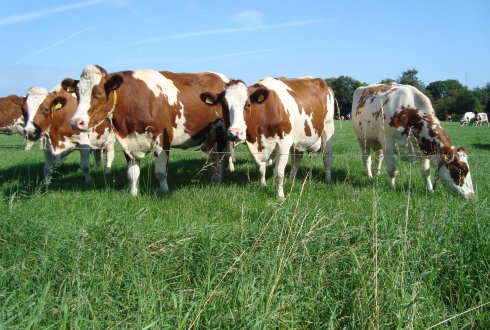



Crackdown on livestock worrying in England and Wales
New measures to crack down on livestock worrying are to be introduced in England and Wales through the Kept Animals Bill introduced to Parliament on 8 June.
Livestock worrying is when a dog attacks or chases livestock on agricultural land or is at large in a field with sheep, which can result in significant injury or suffering and in the worst cases, death of the animals involved. This also has devastating consequences for livestock keepers, causing personal distress as well as significant financial costs.

Improved powers will enable the police to respond to livestock worrying incidents more effectively - making it easier for them to collect evidence and, in the most serious cases, seize and detain dogs to reduce the risk of further incidents. The measures include:
- Increasing the scope of livestock species and locations covered by the law, such as llamas, emus, enclosed deer, and donkeys. New locations will include roads and paths as long as the livestock have not strayed into a road.
- Increasing powers for the police to seize dogs after particularly serious incidents, if there is a reason to believe that dog might pose an ongoing risk to livestock. Currently, the police can only seize a dog for the purpose of identifying the owner, and it has to be returned to the owner once they have been identified.
- A new power to take samples from livestock and dogs suspected of an offence, which will help the police investigate these crimes. At present, most cases of livestock worrying don’t end up in prosecution due to a lack of evidence.
- Modifying powers of entry, meaning that police can enter a premises to identify and/or seize a dog or any items they believe to be evidence of an offence.
- Making dog control, disqualification and destruction orders available to the courts upon a conviction for the offence.
Farming Minister, Victoria Prentis, said:
“Growing up on a farm, and having suffered from a dog attack at home, I know first-hand the devastating effect of livestock worrying and the distress that it causes farmers and animals as well as the financial implications.
“We are cracking down on this issue by introducing new laws to tackle this offence and giving police more powers to act on reports of livestock worrying.”
Although it is already a specific offence to allow a dog to worry livestock, with a maximum fine of £1,000, these proposed reforms will address current enforcement challenges and modernise the legislation to ensure it remains fit for purpose. Since the implementation of the Dogs (Protection of Livestock) Act in1953 the number of livestock in England and Wales has doubled and there has also been an increase in dog ownership and visits to the countryside.
TheCattleSite News Desk


